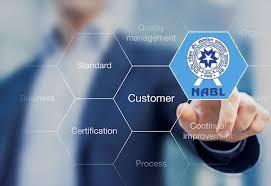In today’s quality-driven world, businesses, manufacturers, hospitals, environmental agencies, and research teams all rely on accurate testing and calibration. Whether it’s food, water, air, consumer goods, industrial equipment, chemicals, or medical diagnostics, every result has the power to influence safety, compliance, and decision-making. That’s why selecting reliable testing facilities isn’t just ideal—it’s essential. At Ecotown, we frequently support organizations that want dependable results, and the conversation often leads to the importance of nabl accredited laboratories.
This guide explains why accreditation matters, how it enhances credibility, and how organizations like yours can benefit from working with the right testing partner. You’ll also learn how Ecotown helps streamline the process so you can focus on what matters most: quality, compliance, and trust.
What Accreditation Really Means—and Why It Matters
Laboratories across India perform thousands of tests every day. But the accuracy of these results can vary drastically depending on technical competence, equipment, and operational systems. This is where accreditation plays a transformative role.
The Value of Third-Party Assurance
Accreditation ensures a lab has been independently evaluated for:
- Technical expertise of personnel
- Quality of equipment and materials
- Correctness of testing procedures
- Traceability of measurements
- Reliable quality management practices
For many industries, working with nabl accredited laboratories (2) isn’t just optional—it is often required by regulators, auditors, and global buyers who prioritize safety and compliance.
Why Organizations Prefer Accredited Labs
Companies and institutions rely on accredited testing because it provides:
- Consistency: Tests follow standardized, internationally recognized methods.
- Accuracy: Results remain dependable, even across multiple samples or testing cycles.
- Credibility: Certification carries weight in audits, inspections, and regulatory submissions.
- Global Recognition: Accreditation is accepted by several international bodies, improving market access.
How Accreditation Strengthens Businesses and Operations
Testing accuracy isn’t simply about compliance; it also influences reputation, customer trust, and financial outcomes.
1. Ensures Product Quality and Safety
Manufacturers—from food processors to electronics brands—depend on trustworthy testing. For them, partnering with nabl accredited laboratories (3) minimizes risks such as product recalls, safety failures, or customer complaints.
Common examples include:
- Food manufacturers testing for contaminants, preservatives, or spoilage
- Cosmetic brands verifying ingredient safety
- Electronics companies validating material strength or conductivity
- Pharmaceutical units checking purity and stability
2. Supports Compliance With National and International Standards
Environmental bodies, government organizations, and global buyers expect strict adherence to quality norms. Using nabl accredited laboratories (4) ensures that documentation is audit-ready and compliant with guidelines.
This is particularly critical for:
- Export-focused businesses
- Healthcare institutions
- Infrastructure and construction companies
- Industrial manufacturing units
3. Protects the Environment and Public Health
Environmental testing requires utmost accuracy because it influences decisions involving natural resources and community well-being.
Examples of tests often entrusted to nabl accredited laboratories (5) include:
- Water quality testing (drinking, borewell, wastewater)
- Ambient air quality monitoring
- Soil contamination analysis
- Noise pollution assessments
When results are backed by accredited expertise, they carry legitimacy in public consultations, environmental clearances, and CSR initiatives.
4. Strengthens Internal Decision-Making
Businesses often use lab results not only to prove compliance but also to improve systems internally. Working with nabl accredited laboratories (6) gives teams confidence to make decisions because the data is:
- Accurate
- Verified
- Reproducible
- Auditable
In sectors like healthcare, pharmaceuticals, and heavy manufacturing, these factors are especially important.
Why Many Clients Choose Ecotown for Laboratory Support
Ecotown collaborates with organizations across India to make the entire testing process easier, faster, and more transparent. While we provide end-to-end consulting and coordination, one question often arises: Why do so many customers specifically request access to nabl accredited laboratories (7)?
The answer is simple—accreditation serves as proof of reliability.
How Ecotown Helps Businesses Simplify Testing
We ensure a smooth, hassle-free experience through:
1. Expert Guidance
Our team understands industry standards, regulatory requirements, and technical processes. From selecting the right test to documentation support, we simplify every stage.
2. Proper Sample Handling
Sample contamination is one of the biggest reasons for inaccurate results. Ecotown ensures correct:
- Sampling methods
- Preservation techniques
- Storage conditions
- Transport procedures
This protects the integrity of the results before they even reach the lab.
3. Fast Turnaround Times
Many industries operate under strict deadlines. We help clients access laboratories that provide accurate results quickly, without compromising quality.
4. Compliance-Ready Documentation
Audit reports, certification papers, and environmental submissions require precision. Our documentation process is structured to meet national and international expectations.
5. Cost-Effective Solutions
By connecting businesses with the right testing partners—including nabl accredited laboratories (8)—we ensure they receive reliable results without unnecessary expenses.
Key Factors to Consider When Choosing a Laboratory
Choosing a lab isn’t simply about picking the closest one. A smart decision requires evaluating several crucial aspects.
1. Scope of Accreditation
Different labs have accreditation for different types of testing. Always ensure the specific test you need is listed under the lab's approved scope.
2. Experience and Expertise
Labs with domain-specific experience deliver better insights. For example, a lab specializing in environmental testing may not be ideal for advanced calibration.
3. Equipment and Technology
Up-to-date instruments ensure better accuracy and faster processing.
4. Turnaround Time
Some industries can tolerate longer wait times, but others—like healthcare and food safety—require rapid reporting.
5. Reporting Format and Clarity
Well-structured reports make audits smoother and support better internal decisions.
6. Cost Transparency
A reputable lab provides clear pricing without hidden charges.
Tips to Maximize Value From Laboratory Testing
Even with the best laboratory, results can be compromised if the sample or process is mishandled. Here are practical ways to ensure reliability:
- Label samples correctly with date, time, location, and type.
- Avoid contamination by using sterile containers and proper handling methods.
- Understand the test requirements, especially whether cold storage or preservatives are needed.
- Share relevant background information to help the lab interpret results better.
- Compare results periodically to monitor consistency over time.
- Record testing history for audits and internal analysis.
Conclusion
Selecting the right testing partner is one of the most important steps for ensuring safety, compliance, and quality. Accreditation is not just a label—it’s a guarantee of competence, accuracy, and trust. At Ecotown, we guide businesses, institutions, and industries in choosing the right testing solutions while ensuring a smooth, transparent, and reliable overall experience.
When you work with qualified facilities, particularly nabl accredited laboratories, you gain the confidence that every decision you make is backed by verified scientific data. Whether your goal is compliance, product development, environmental responsibility, or quality improvement, choosing the right lab makes all the difference.
FAQs
- What is the purpose of laboratory accreditation?
Accreditation verifies that a laboratory follows standardized procedures and maintains high technical competence, ensuring trustworthy and consistent results. - How do I know which tests a laboratory is qualified to perform?
Each accredited laboratory has a published scope that lists the specific tests, methods, and equipment they are approved to use. Checking the scope is the most reliable way to verify suitability. - How often should businesses conduct third-party testing?
Frequency depends on the type of industry and regulatory standards. Some sectors require monthly or quarterly testing, while others may test annually or only during audits and renewals. - Why is sample handling so important in testing?
Incorrect sampling can lead to contamination, degradation, or inaccurate results. Proper collection, storage, and transportation ensure the integrity of the sample. - Can small businesses also benefit from professional testing services?
Absolutely. Testing helps small businesses validate quality, meet regulatory requirements, gain customer trust, and reduce operational risks.

